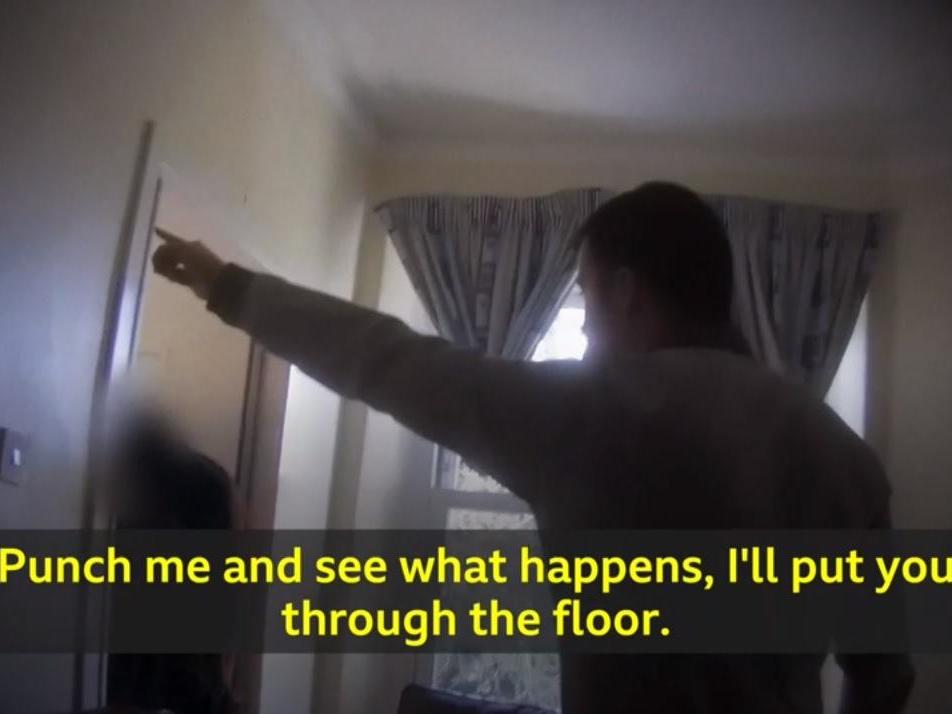‘Alarming rise’ in reports of care home abuse in England
Exclusive More than 67,500 allegations of mistreatment received by CQC last year as watchdog launches inquiry into how mistreatment by staff went unaddressed at Whorlton Hall hospital

Your support helps us to tell the story
From reproductive rights to climate change to Big Tech, The Independent is on the ground when the story is developing. Whether it's investigating the financials of Elon Musk's pro-Trump PAC or producing our latest documentary, 'The A Word', which shines a light on the American women fighting for reproductive rights, we know how important it is to parse out the facts from the messaging.
At such a critical moment in US history, we need reporters on the ground. Your donation allows us to keep sending journalists to speak to both sides of the story.
The Independent is trusted by Americans across the entire political spectrum. And unlike many other quality news outlets, we choose not to lock Americans out of our reporting and analysis with paywalls. We believe quality journalism should be available to everyone, paid for by those who can afford it.
Your support makes all the difference.There has been a dramatic increase in reports of abuse at care homes in England, official figures reveal, as the sector’s watchdog investigates why warnings from whistleblowers and its own inspectors went unheeded.
In 2014 there were 37,060 reported allegations of abuse received by the Care Quality Commission (CQC), compared with 67,590 in 2018 – an increase of 82 per cent. The total number of allegations for the four-year period was 251,679.
The figures were released in response to a written question by Labour MP James Frith and come as CQC has commissioned an internal review of its operations in the wake of revelations of abuse at Whorlton Hall.
“This drastic rise in the number of reported incidents of abuse in care homes is alarming,” said Dan Scorer, head of policy and public affairs at learning disability charity Mencap.
“Even if some of the increase can be attributed to better reporting, these numbers are extremely disturbing and need to be investigated urgently. There should be a zero tolerance approach to abuse.”
The Whorlton Hall investigation was sparked by undercover filming by BBC’s Panorama programme, which showed staff bragging of assaulting residents, threatening them, and using tactics described as “psychological torture”.
A police investigation, first reported by The Independent, into the NHS-funded, privately-run hospital for people with learning disabilities and autism has so far seen 10 staff arrested.
It has since emerged that an ex-CQC inspector, Barry Stanley Wilkinson, accused the watchdog of burying a report after he raised concerns about the hospital in 2015.
Whorlton Hall was eventually rated “good” by the CQC that year, and its rating was not amended despite multiple follow-up visits – leading MPs on the Joint Committee on Human Rights to accuse the regulator of giving “false reassurances”.
Scandalous care in such hospitals is not exclusive to Whorlton Hall. A mental health hospital for children and adolescents in Nottinghamshire, run by St Andrew’s Healthcare, one of the country’s largest care providers, was recently placed in special measures by the CQC after inspections found patients were secluded in unsafe, unfurnished rooms.
While the government has committed to ending the use of inpatient placements to care for people with complex needs, it has missed its targets for closures because of a lack of capacity in the community.
Figures released last week show 2,250 people with learning disabilities and autism are locked away in these centres, a rise from the previous month, while use of physical restraint is at a record high.
Dr Sara Ryan, whose 18-year-old son Connor Sparrowhawk drowned while under the care of an NHS trust, quit the government review of inpatient care in protest at the CQC’s handling of Whorlton Hall.
“The Whorlton Hall scandal recently has removed any confidence I had in the CQC – which wasn’t a great deal,” she told The Independent. “The idea they are facing such an increase is worrying.”
Labour’s shadow mental health and social care minister, Barbara Keeley, has called on the government to review whether the CQC is still “fit for purpose” if it cannot ensure the safety of inpatients even when concerns are raised.
“We encourage all people using adult social care services to speak up about their experiences of care,” Kate Terroni, the CQC’s chief inspector of adult social care, said.
“Hearing directly from people is an important part of our inspection work and contributes to driving improvements in standards, as well as helping us identify where poor care has taken place.”
She added that the watchdog takes these concerns seriously and can close down services where it finds issues.
The Department of Health and Social Care said 84 per cent of adult social care providers are rated “good” or “outstanding” by CQC.
”Abuse of vulnerable people is abhorrent and we expect all care homes to protect their residents,” a spokesperson added. “To ensure this happens we have introduced robust inspections of care services and made sure that the police, councils and the NHS are working together to help protect vulnerable adults.”
The government department added that councils had received £3.9bn to fund adult social care this year – though this isn’t limited to people with autism and learning disabilities and the government has delayed promised reforms of the sector six times since 2017.
Join our commenting forum
Join thought-provoking conversations, follow other Independent readers and see their replies
Comments